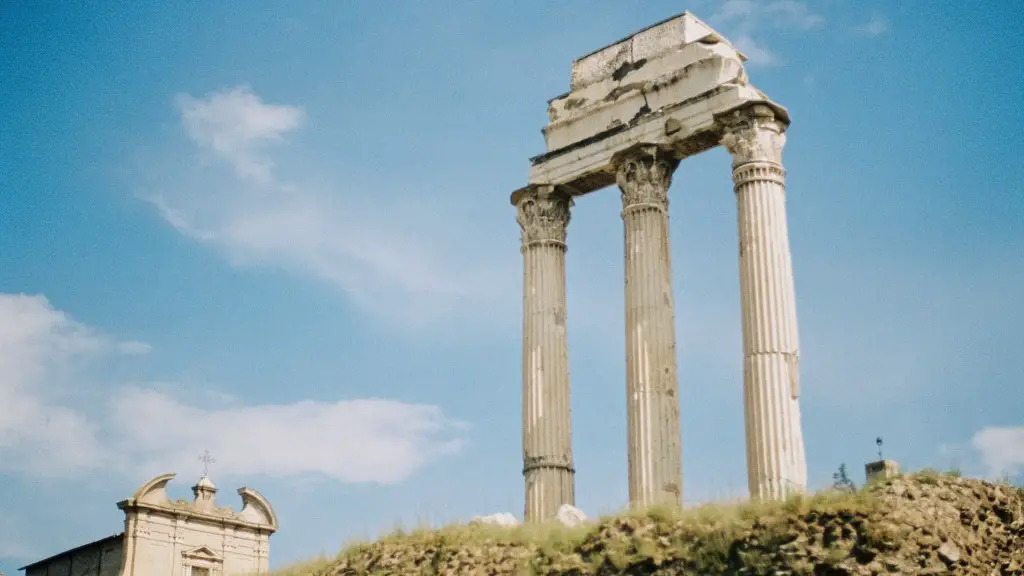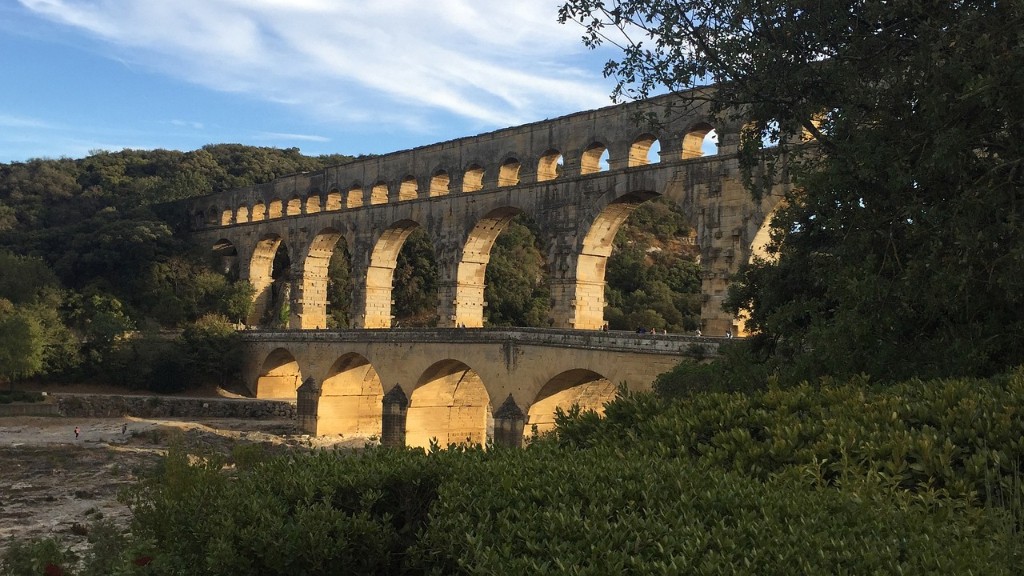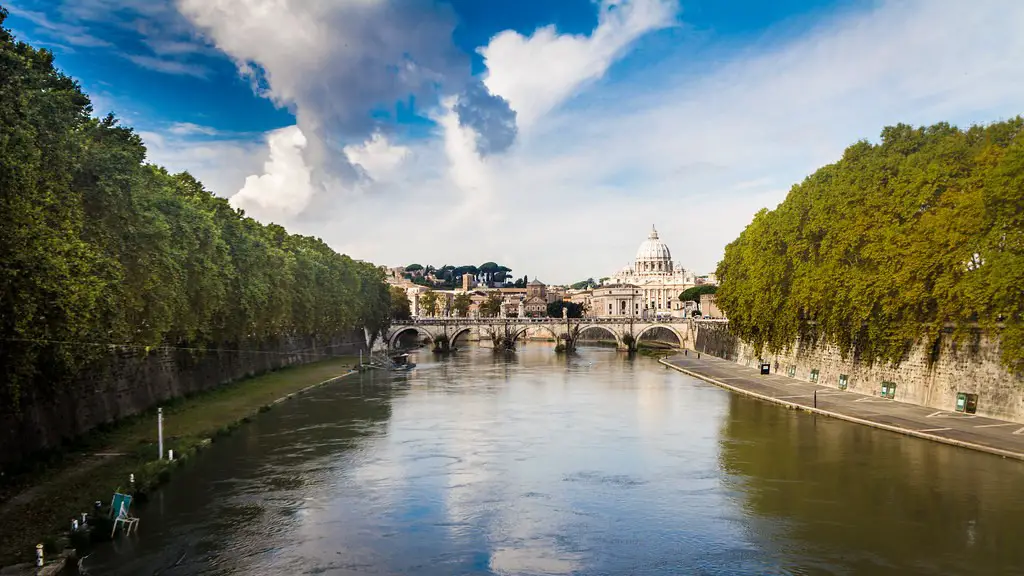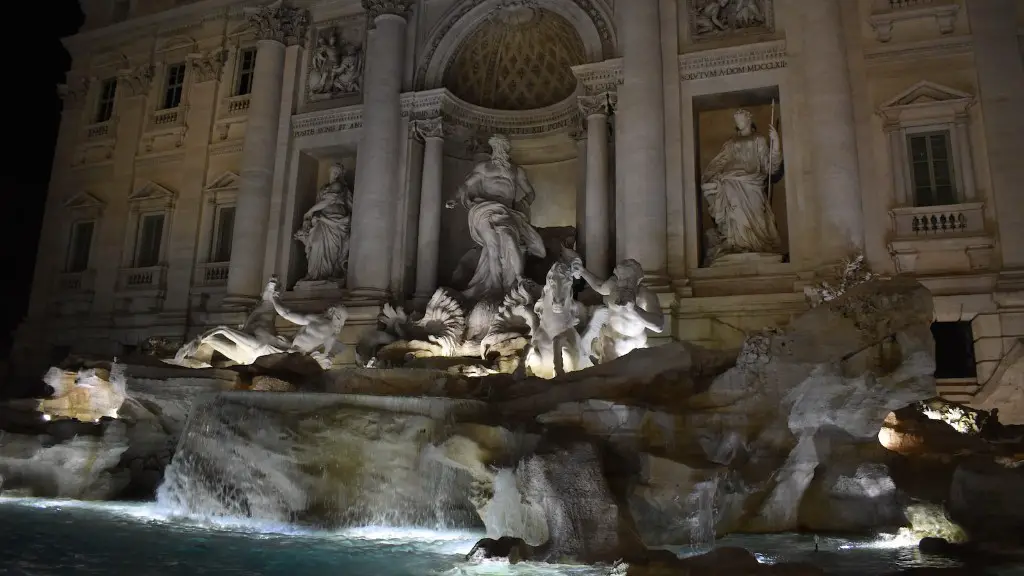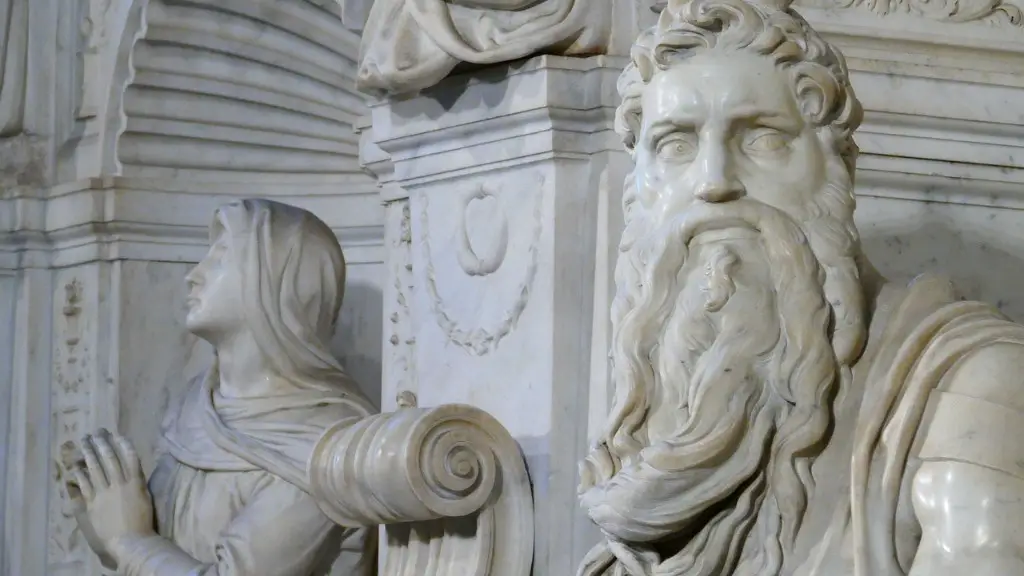The Roman Empire of ancient times was one of the most impressive empires on earth. It is not surprising that the religion of the Romans was central and important to the life and culture of the Roman people. In this article, we discuss the aspects of the Roman religion that made it so popular and influential. We’ll look at the festivals, deities and religious practices that were important to the people, and how the religion of Rome developed over time.
The Roman religion was polytheistic, meaning that it believed in many gods. Each god was responsible for different aspects of life and were worshipped accordingly. The gods were thought to have created all of the world, and they were believed to intervene in human affairs. This enabled the Romans to believe that they were, in some sense, governed by the gods, which gave a sense of comfort and stability to society.
The most important god was Jupiter Optimus Maximus, the god of justice, order and sovereignty. Other gods that were important to the Roman religion included Juno, who was the goddess of marriage and childbirth; Apollo, god of music, healing and the sun; Venus, goddess of love and beauty; and Minerva, goddess of crafts, wisdom and trade.
The Roman religion was very ritualistic, and festivals were held throughout the year to honour the gods. The most important festivals were the Saturnalia, the Lupercalia and the Neptunalia. These festivals often featured religious ceremonies and offerings, as well as feasting and other celebrations. The Romans also celebrated famous battles and important historical events with religious processions and ceremonies.
The Roman religion also incorporated elements of other religions that were practiced by peoples the Romans had conquered. This allowed the Romans to keep their religious traditions while also incorporating aspects of other cultures. For example, some religious ceremonies featured branches of olive trees, which were believed to be sacred to the Greeks, and the Romans in turn believed them to bring good luck.
The Relationship between the Roman Religion and Politics
The religion of Ancient Rome also had an important relationship with politics. The Roman Empire used its religion to justify its power, claiming that its rule came from the gods. The most important political figure in Rome was the pontifex maximus, the chief priest of the Roman religion. He held great power and influence, and was consulted in matters of state.
The pontifex maximus also had a role in keeping the people loyal to Rome. He often used his religious authority to reinforce the importance of loyalty to the empire, and this could be seen in the festivals he presided over, which were constructed so as to make loyalty to the emperor seem more like a religious duty than a political one.
The Roman religion also helped in unifying the Empire. It was one of the few things that all of its citizens had in common, regardless of their nationality or social standing. This shared faith helped to forge a sense of common identity between the different parts of the Roman Empire, which in turn helped to maintain peace and order.
Why was the Religion of Ancient Rome so Popular?
The religion of Ancient Rome was incredibly popular, and its influence can still be seen today. One of the primary reasons for its popularity was the comfort and security that it provided to the people. Its multiple gods meant that they felt they were connected to something greater than themselves and were part of something larger.
The rituals and festivals associated with the Roman religion also gave people something to look forward to. They were also a way of expressing their belief and devotion to the gods, and could give people a sense of purpose and unity.
The Roman religion was also adaptive and flexible. Although it had its roots in the gods of Rome, it was open to the incorporation of aspects from other cultures and religions. This allowed it to remain relevant and attractive to the people, even as their lives and society changed.
Finally, the Roman religion was tightly intertwined with politics. The pontifex maximus was an important figure, and his role in promoting loyalty and order meant that the religion was seen as necessary for the continued success of the Empire.
The Decline of the Roman Religion
The Roman religion began to decline in the 4th and 5th centuries, due to the rise of Christianity. Christianity began to take hold in the Roman Empire, and many Romans converted to the new faith.
The Roman religion was also persecuted by the Christian Romans, and the structures and festivals associated with it slowly started to disappear. Although it slowly faded away over the centuries, it still had an important impact on the culture and religion of the Roman Empire.
The Roman religion also played an important role in the development of Christianity. Its multiple gods, rituals and festivals helped to shape and inform the Christian faith, and its traditions can still be seen today.
Legacy of the Roman Religion
The influence and legacy of the Roman religion can still be seen today. Its ideas about the gods played an important role in the development of modern religion, and its rituals and festivals have been adopted by many other religions.
The statue of Jupiter Optimus Maximus in Rome is also a testament to the importance of the Roman religion. It is a reminder of the power and influence of the Roman gods, and of the comfort and security they provided to the Roman people.
The polytheistic gods of Ancient Rome also remain popular even today. Many people still see them as symbols of wisdom, strength and justice, and look to them for guidance and protection in their lives.
Conclusion
The religion of Ancient Rome was an important and influential aspect of Roman life and culture. Its polytheistic gods and rituals provided comfort and security to the people, and its festivals helped to bring people together. It also had an important connection to politics, with the pontifex maximus playing a major role in the success of the Roman Empire. Finally, the impact of the Roman religion can still be seen today, both in the Christian faith and in the legacy of its gods.
